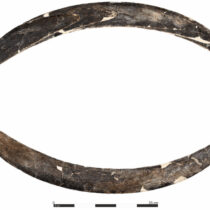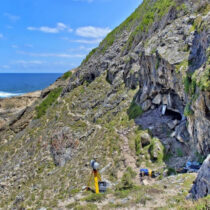On Friday, June 15, the Netherland Institute at Athens (NIA) hosted the Data Modelling Workshop “nodegoat” by LAB1100. The organization of the Workshop was an initiative of Elias Stouraitis (Ionian University).
Nodegoat is a web-based data management, network analysis & visualization environment that can be used to create and manage any number of datasets by use of a graphic user interface. “Nodegoat” allows us to enrich data with relational, geographical and temporal attributes. Therefore, the modes of analysis are inherently diachronic and ready-to-use for interactive maps and extensive trailblazing.
Twenty participants from different fields (historians, archaeologists, anthropologists, practitioners from cultural centers and digital oriented companies, journalists and students) came together to this hands-on workshop and dealt with the following three distinct levels of any data modelling process:
- Creating a conceptual data model (the types of information that can be identified in the research process and how they relate to one another)
- Creating a logical data model (how to store different kinds of information and how to deal with vague / ambiguous / uncertain / contradictory / unique / irregular data)
- Using a database application (how can the conceptualised data be implemented best)
During the workshop, participants focused on getting a good understanding of these three distinct levels and exploring how these levels inform each other and they comprehending the interrelations among distinct levels. After this, participants created and refined a data model of their own and learned how to implement this in “nodegoat”.
The workshop instructors Pim van Bree (MA in New Media and Digital Culture at the University of Amsterdam) and Geert Kessels (BA in History from Radboud University Nijmegen and MA in History at the University of Amsterdam) came to Greece in order to share their expertise with the participants. They stated that they were delighted to work with such an enthusiastic group of scholars and to help them to conceptualise various exciting database projects.
This workshop definitely delivers an added value to each participant as this is a well-thought-out database for digital humanities projects allowing users to make various modes of analysis, visualization, and interconnectivity. Each database with data requires a thorough understanding of the underlying conceptual and logical data model making participants capable to implement it to their research or job.




